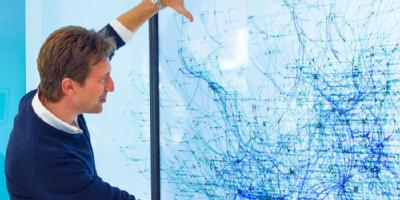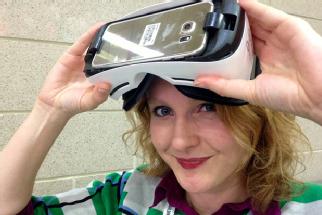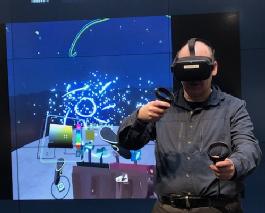DAL Showcase 2022: a competition for Arts Faculty students
If you are a current student in the Arts Faculty at Warwick the DAL Showcase competition is for you.
Have you made a video, podcast, web page, mind-map, multimedia essay or other digital production for your studies this academic year? If so, you can enter. Or you could make something new to enter the competition. If you need help with digital productions, contact Robert O'Toole via Teams Chat (he is always happy to help, and has some equipment available for you to use).
You might win a £50 prize which will be recorded on your official Higher Education Achievement Report (HEAR). And as previous students have told us, its a great thing to do for developing your skills and your CV (you can access expert support to help you).
You can enter work you have done on your own, or as a team.
- You will need to share the file or a web link to your work.
- Submit a 300-word reflective account (write it in Word then copy it into the form) - it can include what you did, how you did it, what you learned from the process, how it will help you with your future career and studies, and how it relates to theme "connections".
- The closing date for submissions is midday 20th June 2022.
What's in it for You?
- A unique chance to showcase your creativity and passion for the Arts
- Winners and participants will see their creations featured in the Digital Arts Lab Showcase. The DAL Showcase exists to demonstrate the incredible talent and abilities of students and staff at the University of Warwick.
- Your submission will remain a feature of the Showcase for at least five years, offering you an opportunity to feature your work in portfolios and showcase your talents to future employers and collaborators.
- Support the development of your own critical skills, such as digital literacy, communication, problem-solving and teamwork.
**£50 vouchers for the winners will be awarded**
Get inspired
Have a look at last year's entries and winnersLink opens in a new window.
Watch this video interview with one of the winning teams from 2021Link opens in a new window (recorded at the TEALFest conference in 2022).
This year's theme to inspire you is "connections". How have you explored or created connections in your work using digital tools? Why connections? One of the key capabilities that Arts and Humanities studying Arts and Humanities subjects is an ability to make connections between between things in new ways, and to use those connections to transform our ideas, abilities, actions, and experiences. This is a powerful thing to do in many fields. You can interpret the theme in your own way, but to inspire you, here are some example and ideas from our academics and innovators (articles in the DAL blog):
Research: discovering fascinating connections in the pastLink opens in a new window
 |
Professor Michael Scott (Classics and Ancient Civilisations) argues for the value of seeing connections on a global scale. In our increasingly globalised world, this is important to help us to make sense of life today, how it came to be as it is, and what it might become. Find out more.Link opens in a new window |
Social impact: connecting people in the past, the present and the futureLink opens in a new window
| In this example we consider a virtual reality experience by Catherine Allen (CEO of VR consultancy Limina Immersive, Warwick Theatre Studies alumnus). Think about how it uses digital storytelling to create a very personal and transformative experience. The aim was to make a personal connection between the participant and the historical figure: empathy. You could achieve the same using other storytelling mediums: podcasts, video, blogs, live events. Find out more.Link opens in a new window |  |
Innovation: creating new connections for the futureLink opens in a new window
 |
Assoc. Professor Robert O'Toole describes how he uses an Arts perspective to see the potential in new technologies, making fresh connections that inspire design innovations that work for real people. This approach is called Design Thinking. Arts and Humanities graduates are often really good at it. Find out more.Link opens in a new window |
Deadline 20th June
Rules and guidelinesLink opens in a new window
Support and guidance
Contact Robert O'Toole through Microsoft Teams Chat.
